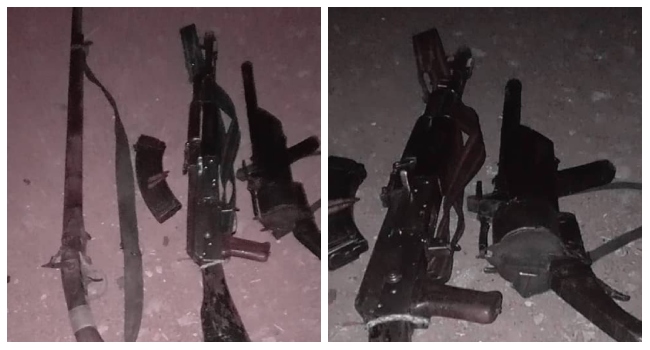Nigerian Army troops deployed for Counter-terrorism Counter-insurgency operations in the North West on Monday 15 April 2024, made a significant inroad into terrorists’ enclave in Maru Local Government Area of Zamfara State, where they destroyed the camp and exterminated the terrorists.
Acting on credible intelligence on the activities of the terrorists, troops conducted a targeted clearance operation to dismantle the suspected terrorists’ operational base in the town of Maru. In a fierce gun battle with the terrorists, the gallant troops neutralized 12 of the terrorists, compelling the others to flee.
The troops also recovered one AK-47 rifle, one magazine, 12 rounds of 7.62mm (Special) ammunition, and two locally fabricated gun. Additionally, our troops captured 10 operational motorbikes used for mobility by the terrorists and 18 rustled cows. The troops destroyed the terrorists’ base after dislodging them.
According to the army, this development is a testament to the dedication of its troops in the fight against terrorism and insurgency. The Nigerian Army through its spokesman, Major General Onyema Nwachukwu, said it remains committed to ensuring the safety and security of citizens and will continue to take decisive action to curb terrorists’ activities in the region.
General Nwachukwu added that the army rear resolve to sustain the momentum in the ongoing efforts to rid the North West and other troubled areas of terrorism and insurgency. By Soonest Nathaniel, Channels Television






